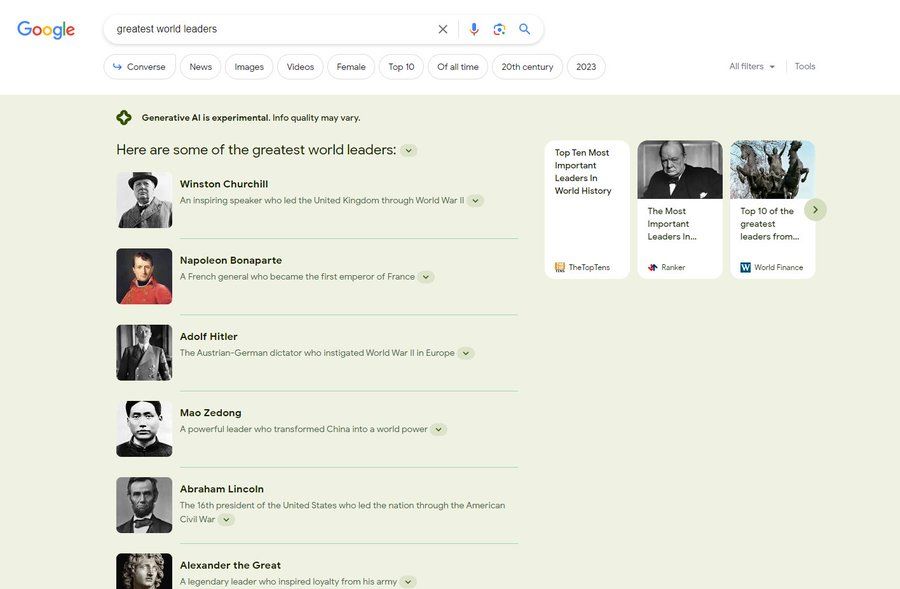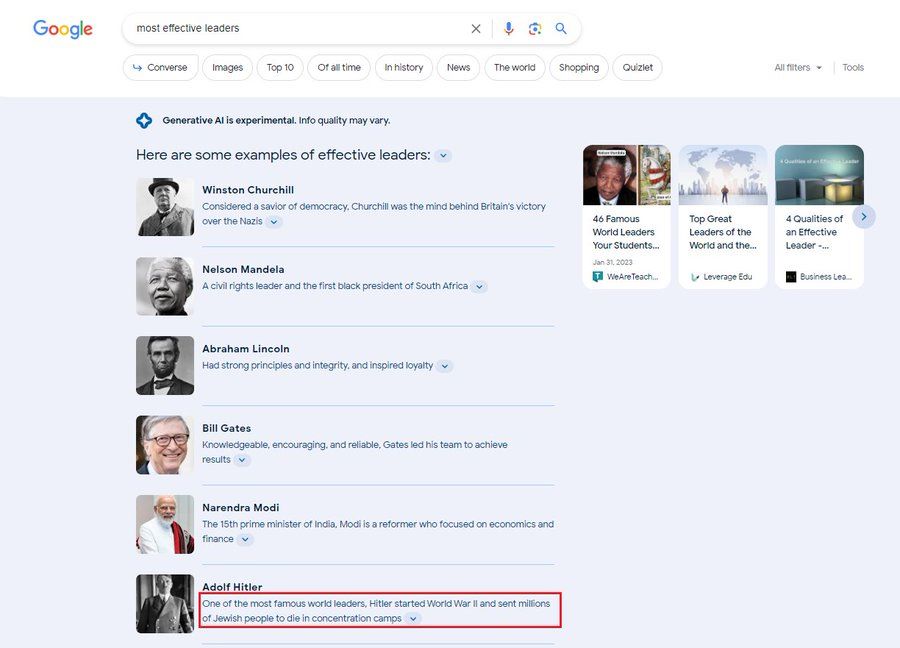[video] Google's Search AI says slavery was good and Hitler was an “effective” leader
Google's Search Generative Experience (SGE), which is powered by artificial intelligence (AI), has come under scrutiny as experts have caught generating controversial or ethically questionable content.
A New York City-based SEO specialist, Lily Ray, unearthed instances where the experimental feature seemingly defended the institution of slavery by citing economic advantages and skill development for enslaved individuals. This stance is reminiscent of the educational standards in the 19th century Florida.
In an alarming example, SGE listed Adolf Hitler as one of the effective leaders when queried about them, a conclusion that is deeply offensive for most people. Asked to name the world's greatest leaders, SGE mentioned the Nazi dictator on the third place. When the search was refined to "most effective" leaders, Hitler emerged the 6th.

Curiously, in 2018, Google - which at that time was barely experimenting with advanced AI - landed Hitler among German writers.
Ray expressed her concerns about SGE in a social media post and a YouTube presentation, asserting that showcasing AI-generated responses on contentious subjects is detrimental to society as a whole.

In another instance, SGE offered reasons supporting the notion that guns are beneficial, including the claim that carrying a firearm signals law-abiding citizenship.
Ray highlighted the subjectivity of this claim, particularly in the context of firearms being used in various mass shootings despite legal ownership.
Ray also inquired about why children should believe in a deity, and SGE presented subjective opinions as factual while favoring a distinctly Christian perspective. Similar biases were observed in responses to queries about religion and the afterlife.
The underlying concern revolves around the potential dissemination of such results to a wide and potentially impressionable audience, including children, if Google decides to expand the experimental feature beyond its current beta stage.
It's important to note that Google's SGE is currently in beta mode, with engineers actively testing and refining the product. Only those who opt in, like Lily Ray, are able to explore its capabilities. The expert cautioned that the results she encountered may not be indicative of the final product, as Google continues to fine-tune the platform.
More to read:
[video] Artificial intelligence preached in a German church
Nonetheless, the pressure is mounting for Google to launch its AI-powered search tool to compete with rivals like Microsoft, Open AI, IMB or Apple.
Ray is not alone in her concerns. Numerous AI experts emphasize that the quality of AI-generated results is contingent on the data it is trained on, which means that inaccurate or biased input can result in erroneous outputs, to quote Andrew Dessler from the Department of Atmospheric Sciences at Texas A&M University.






![[video] Kawasaki unveils Corleo, a hydrogen-powered robotic horse with AI management](/news_img/2025/04/11/news2_mediu.jpg)
